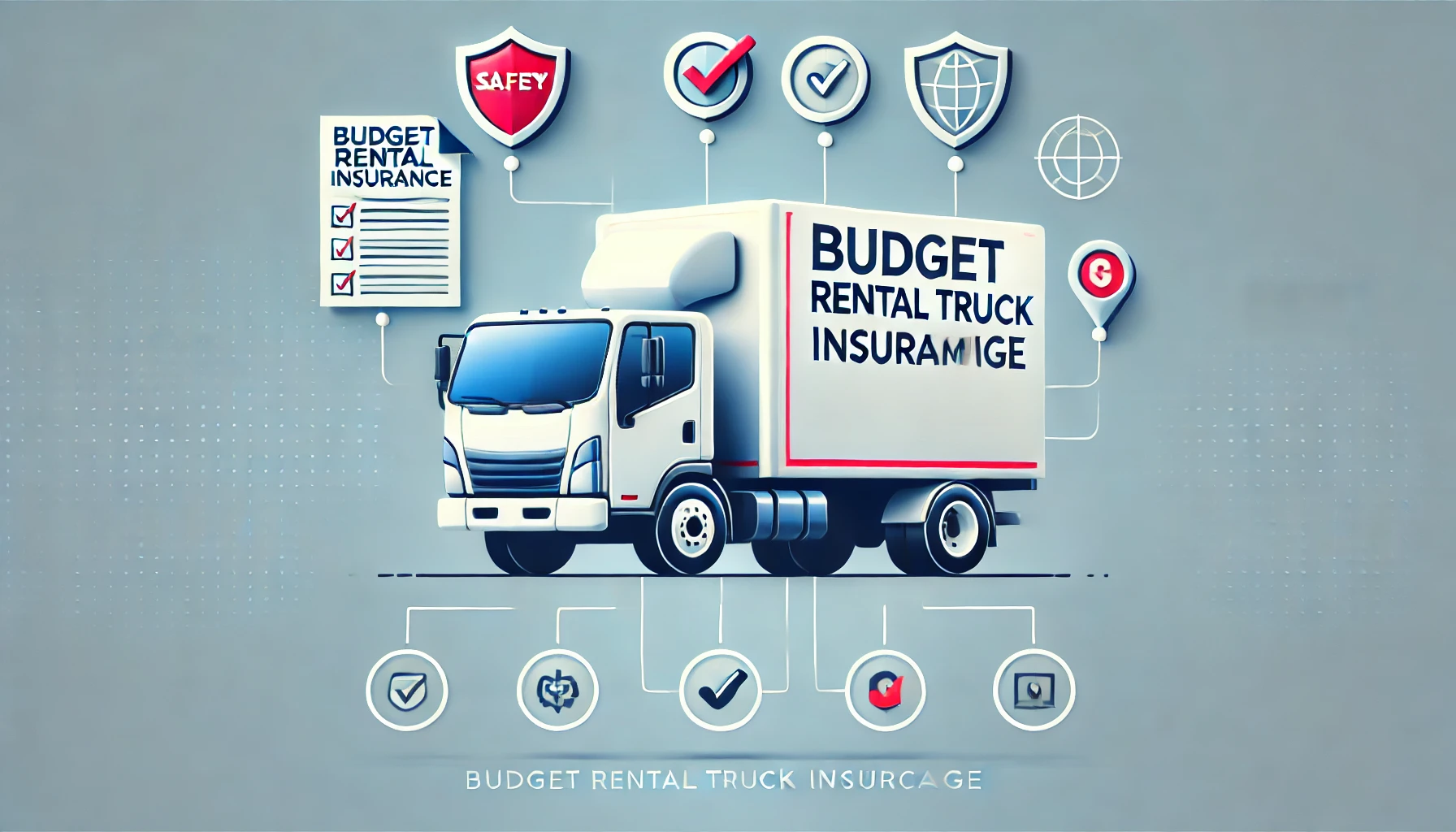When renting a truck, whether for a move or a large-scale delivery, having the right insurance is crucial. It can save you from unexpected costs and provide peace of mind during what could otherwise be a stressful experience. If you’re renting a truck and looking for ways to keep expenses manageable, understanding budget rental truck insurance coverage is essential. In this blog post, we’ll guide you through the different insurance options available, explain why this coverage matters, and help you make an informed decision to protect yourself while staying within your budget.
Why You Need Budget Rental Truck Insurance Coverage
Renting a truck may seem straightforward, but without the proper insurance coverage, things can quickly become complicated. Truck rental companies often offer basic protection, but it may not be enough to cover all potential risks. Accidents, theft, or damage to the vehicle can result in high out-of-pocket costs if you’re not fully insured.
Budget rental truck insurance coverage is designed to protect you from these unforeseen circumstances. When renting a truck, you’re typically responsible for the vehicle while it’s in your possession. That means any damage, accidents, or liability claims could fall directly on you. The last thing you want is to face a costly repair bill or lawsuit after a rental period.
Having rental truck insurance ensures you’re covered in a variety of scenarios. Whether it’s damage to the truck, injuries to others, or damage to someone else’s property, your insurance policy can step in and cover these costs. The peace of mind that comes with knowing you’re protected makes renting a truck much less stressful.
Exploring the Different Types of Rental Truck Insurance Coverage
When exploring budget rental truck insurance coverage, you’ll find several options to choose from. It’s important to understand the differences between each type of coverage so you can select the best one for your needs.
Damage Waiver (DW): This type of insurance relieves you of financial responsibility if the rental truck is damaged or stolen during the rental period. It’s one of the most common forms of insurance offered by rental companies. The damage waiver typically covers both major accidents and minor damages, such as scratches or dents.
Supplemental Liability Insurance (SLI): This coverage protects you if you’re held responsible for damages or injuries to others. Rental trucks, especially when used in unfamiliar areas, come with an increased risk of accidents. SLI covers the costs if you’re found liable for damaging someone else’s vehicle, property, or causing injuries.
Personal Accident and Cargo Insurance (PAI/CAI): PAI covers medical costs if you or your passengers are injured in an accident involving the rental truck. CAI, on the other hand, provides coverage for the cargo you’re transporting. This is especially useful if you’re moving valuable items and want extra protection for your belongings.
Affordable Insurance Options for Budget Truck Rentals
Keeping your budget rental truck insurance coverage affordable requires some strategic planning. While insurance is necessary, there are ways to keep costs down without sacrificing protection. Here are some tips to help you get the coverage you need while staying within budget:
1. Compare Rates Across Different Rental Companies: Not all rental truck companies offer the same rates or coverage options. Some may offer discounts or promotions, especially if you’re renting for multiple days. Always take the time to compare rates and insurance coverage between companies before making a decision.
2. Check Your Existing Insurance Policies: Before purchasing any additional rental truck insurance, check with your auto insurance provider or credit card company. Some credit cards offer limited rental truck coverage, and your existing auto insurance policy may extend to rental vehicles, although this is less common for larger trucks.
3. Opt for Basic Coverage if Possible: If you’re comfortable taking on some risk, opting for a more basic insurance plan can help reduce costs. This is especially true if you’re only renting the truck for a short period or if you won’t be traveling long distances.
What to Do When You Need Coverage After an Accident
Despite all precautions, accidents can happen. If you’re involved in an accident while driving a rental truck, it’s important to know how to handle the situation. Here’s a step-by-step guide to ensure you’re properly protected under your budget rental truck insurance coverage:
1. Ensure Safety: The first priority after any accident is ensuring the safety of everyone involved. Check for injuries and call emergency services if necessary. Move the truck to a safe location if possible.
2. Contact the Rental Company: Immediately inform the rental truck company of the accident. They will guide you on what steps to take and may send assistance if the vehicle is not drivable.
3. Document the Scene: Take pictures of the accident scene, including any damages to the rental truck and other vehicles involved. This documentation will be essential when filing an insurance claim. Get the contact information of any other drivers and witnesses.
Conclusion: Choosing the Best Insurance for Your Rental Truck
Renting a truck is often a necessity for moving, deliveries, or transporting large items. However, it’s essential to protect yourself with the right insurance coverage. Budget rental truck insurance coverage offers peace of mind by covering potential risks such as accidents, damage, and liability claims. By understanding the various insurance options and taking steps to reduce costs, you can ensure that your rental experience is smooth and stress-free.
Whether you’re renting a truck for a day or a week, having the right insurance plan in place is crucial. Take the time to explore different coverage types, compare rates, and bundle where possible. Doing so will help you find a plan that fits your needs and your budget, allowing you to rent a truck with confidence.
